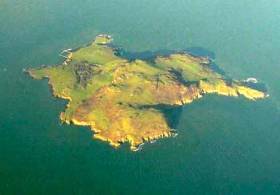Displaying items by tag: Fingal Rowing Club
Puspure Star Attraction at Fingal Rowing Club Event
#Rowing: Fingal Rowing Club has announced on International Women’s Day that it will host an evening with Sanita Puspure, the reigning world champion in the women's single scull. The event will be held at Rush Sailing Club on April 28th and will focus on competitive rowing and a mindset for winning.
There will be a discussion on women in the sport of rowing and its growing popularity. There will also be a focus on health, fitness and endurance ahead of the Celtic Challenge and the Lambay Rowing Challenge, two long distance rowing races in which Fingal Rowing Club will be participating this year.
If time permits there will be a short Q&A following the talk. The bar will be open on the night and light refreshments will be available.
Tickets, which are €10, are available from Fingalrowingclub.ie
Fingal Rowing Club Hosts Lambay Challenge This April
#Rowing - Fingal Rowing Club will host the Inaugural Lambay Rowing Challenge on Sunday 15 April.
The 19km fundraising race from Rush Sailing Club to Lambay Island and back is open to all open water rowing vessels including but not limited to traditional wooden working boats, currachs, skiffs and Celtic longboats.
Funds raised on the day will go towards Fingal Rowing Club’s new skiff boat build.
The newly formed club says the event will be a great way to shake off those off-season cobwebs in preparation for the East Coast rowing season and longer distance races.
The challenge promises a day of fun but its not for the faint of heart and will test the crews involved, so only experienced coastal rowers need apply.
Find out more on the Facebook page for the Inaugural Lambay Challenge HERE.





























































